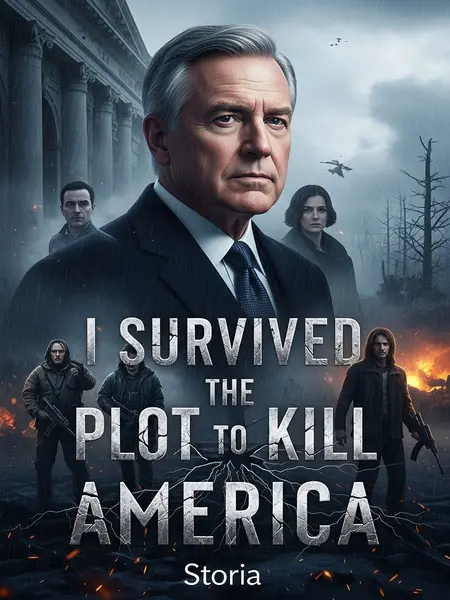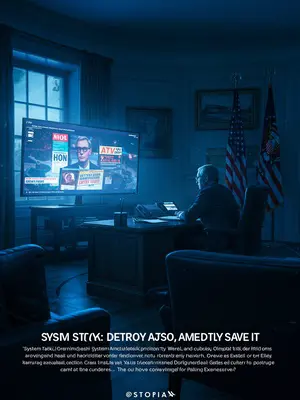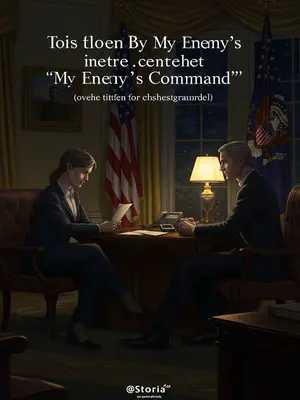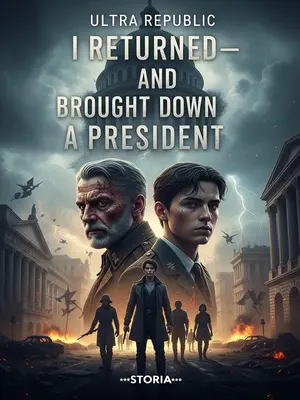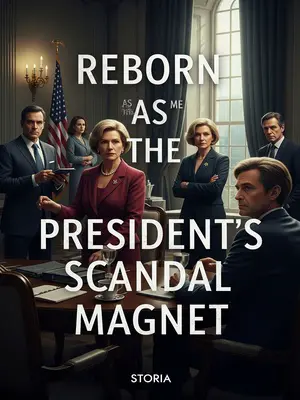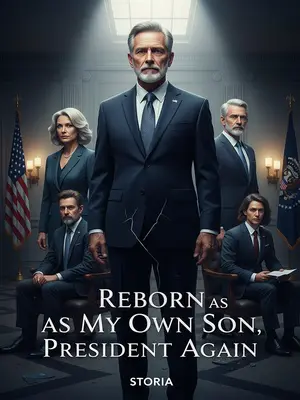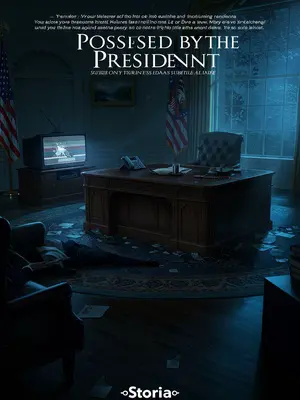Chapter 2: Bombers at Dawn
The report was this: President Whitaker had already left northern Dakota and moved to Silver Hollow, just outside Duluth.
It was the break they’d been praying for. Suddenly, the impossible seemed just within reach.
Dorsey marked Silver Hollow’s location on a map and explained to Governor McMillan that it was just a tiny town, barely a hundred households, and General Nathaniel Boone’s North District Command had been stationed there for some time.
The general’s finger traced the winding roads on the map, pausing at the tiny dot that was Silver Hollow. It looked harmless, almost laughably insignificant—a place you’d drive through without ever stopping. But now, it was the center of everything.
According to more intel from the opposition’s Northern Bureau, President Whitaker’s exact location was in a row of houses on the west side of town, under heavy guard.
The detail was chilling. It meant someone on the inside was feeding them more than just rumors. The opposition’s confidence grew with every new scrap of information.
Governor McMillan immediately convened a top-secret meeting with only a handful of senior generals. The opposition’s Department of Defense drafted an assassination plan codenamed "Operation West Wind," with the Bureau of Investigation providing intelligence, and air, ground, and intelligence units all working in concert.
The meeting took place in a windowless room, thick with cigarette smoke and tension. Voices were kept low, every word weighed carefully. No turning back now. Everyone in that room knew what was at stake.
To cover every angle, Dorsey came up with three ways to get it done:
First, he would hand deadly sodium cyanide to a special agent already embedded near President Whitaker, instructing the agent to slip it to Whitaker when the time was right.
The idea was as old as treachery itself: slip something into the food, let the world believe it was just bad luck. Dorsey trusted the agent—he’d been in place for months, biding his time.
Second, Dorsey would provide the agent with a specially made assassination firearm, so the agent could take the shot if it came to that.
The weapon was custom-made, smuggled in a crate of canned peaches. It was small enough to hide, powerful enough to do the job. The agent was told: if the poison failed, use this.
If neither of those plans worked, the third plan was a desperate gamble: they’d send in bombers to take Whitaker out.
It was a last resort, reckless and loud. But sometimes, desperation leaves no room for subtlety.
After receiving the sodium cyanide from Dorsey, the agent never got a chance to act. President Whitaker had previously survived a poisoning attempt by the opposition in Fargo, so now his food was strictly guarded. He didn’t eat at the military district’s small mess hall; his life was managed by dedicated personnel, and the Central Office implemented strict security measures to eliminate all possible loopholes—so the agent never got close.
The security detail was relentless. Every meal was double-checked, every cook vetted. The agent spent sleepless nights waiting for an opening that never came. Waiting for an opening that never came.
Unable to poison Whitaker, they moved to the second plan. Dorsey ordered up a batch of custom guns from British intelligence and gave them to the agent for the assassination.
The guns arrived in a battered suitcase, their serial numbers filed off. The agent practiced for hours in a barn outside town, but he never got the chance to get close enough.
He could feel the walls closing in. Every approach was watched, every corridor guarded. Even the windows were covered. The agent began to feel the walls closing in.
With the country on the line, the opposition was expected to make one last, desperate play. President Whitaker’s personal safety was of utmost importance.
Rumors of plots and threats filled the air. Whitaker’s security team slept in shifts, radios squawking through the night. Every shadow hid a threat.
General Boone assigned people to monitor all possible sniper positions near Whitaker’s residence around the clock. And even commanders had to give advance notice before seeing Whitaker—and no one was allowed to carry a weapon.
The rules were strict, almost paranoid. No one got close without clearance, and even the highest-ranking officers were frisked. It was a fortress, in all but name.
With security this tight, the shooting plan was a non-starter.
The agent sent a final, frustrated message: there’s no way in. Dorsey realized the window was closing. The window was closing, fast.
After Dorsey reported back, McMillan made the call. No matter what anyone thought, Whitaker had to go—even if it meant bombing Silver Hollow.
The decision came after a long silence, broken only by the ticking of a wall clock. McMillan’s face was set. "If we can’t get him quietly, we’ll get him loud," he said, his voice flat.
Once the plan to bomb Silver Hollow was finalized, the opposition’s military secretly mobilized bombers, while Dorsey had the agent draw up a map of Whitaker’s place.
The agent drew the map by candlelight, hands shaking. Every window, every tree in the yard, every possible escape route was marked. He knew exactly what would happen if those bombs hit their mark.
The bombers were soon in place, with the B-25 light bomber selected. This twin-engine plane could carry 4,000 pounds of bombs; four planes together could deliver more than seven tons. The payload included heavy bombs, airburst bombs, cluster bombs, and incendiary bombs. If these bombs hit, nothing—people or buildings—would survive.
The crews checked and rechecked their payloads, the mechanics working under tarps to avoid prying eyes. The tension was thick enough to taste.
After the agent submitted the map, Dorsey felt even more confident, since the map was so detailed.
He studied the map late into the night, tracing the lines with a trembling finger. For the first time, he allowed himself to believe they might actually pull this off. Maybe, just maybe, they could pull this off.
To make sure nothing went wrong, the opposition first sent a small reconnaissance plane to photograph the target area from the air. They used the agent’s intel to draw up a new bombing map, working through the night.
The photographs, grainy and gray, were pinned to a corkboard next to the hand-drawn map. The planners pored over them, arguing over angles and approach vectors until sunrise.
Governor McMillan had high hopes for this operation, seeing it as a last-ditch counterattack—with Deputy Commander William Stoddard running the show.
Stoddard was a steady hand, the kind of man who’d flown through flak and fire. The younger pilots watched him, taking their cues. His presence calmed them, showing them how to handle the pressure.
To prevent leaks, crew members were not told the mission’s content, location, or target before takeoff. Instead of Duluth or Minneapolis, the bombers took off from Springfield Airfield, deep in the heartland. The takeoff time was set for the early hours of the next day.
The Springfield airfield was little more than a strip carved out of farmland, surrounded by cornfields and silence. The crews were woken before dawn, given sealed envelopes, and they marched to their planes under a sky full of stars.
They stayed up all night in the operations room, personally giving the order for takeoff. Then, they waited.
They drank endless coffee, fingers drumming on the console, eyes flicking between the radio and the wall clock. Every minute felt like an hour.
Shortly after takeoff, a message came in.
The room went silent as the operator scribbled down the code. Everyone leaned in, holding their breath.
McMillan and the others exchanged glances. Could it really be over so fast?
For a heartbeat, hope flared. Maybe, just maybe, it was over.
But the message dashed their hopes. Shortly after takeoff, the weather suddenly changed: lightning, thunder, fierce winds, and heavy rain at the airfield.
The pilots radioed back: visibility zero, turbulence fierce. The mission was off, at least for now.
They radioed for instructions; the mission was postponed.
The disappointment was thick enough to taste. McMillan cursed under his breath, Dorsey slammed his fist on the table. They’d been so close.
The weather guys had called for clear skies. This sudden change caught them completely off guard.
It was a freak storm, the kind that comes out of nowhere. Some called it bad luck, others called it fate. Either way, the plan was on ice.
The weather finally cleared, and at dawn on the third day, the bombers took off.
The crews were exhausted but determined. There was no more room for delay. This was it.
On the morning of May 18, 1948, General Nathaniel Boone, then commander of the North District Military, got up, took his usual morning walk, then sat down for breakfast. Suddenly, his secretary, Peter Jennings, reported that enemy aircraft were active in the Red River area north of Silver Hollow.
Boone was halfway through his eggs and toast when Jennings burst in, face pale. The general set his fork down, his mind already racing through backup plans.
Soon, Boone heard the roar of planes.
It started as a distant hum, then grew to a full-throated roar that rattled the windows. The sound was unmistakable—enemy bombers.
Enemy planes were a common sight. Normally, Boone wouldn’t have paid much attention, but now that President Whitaker was living there, he was especially alert.
He shot a glance at his watch, then at the sky outside. Something about the way the engines droned made his gut twist.
First, a Mustang fighter circled overhead. Then another plane, its engines heavy, flew unusually low.
The Mustang’s silver fuselage flashed in the morning sun, looping lazily over the town. Then came the bombers, their engines throbbing like thunder. Boone knew instantly this was no routine patrol.
Boone’s instincts kicked in. He bolted for Whitaker’s place.
He didn’t bother with his coat, just bolted out the door and sprinted across the muddy yard, boots slipping in the dew. Every second counted.
Whitaker was a night owl, thanks to years of insomnia. He usually worked at night and rested during the day. Once he was asleep, no one dared to disturb him lightly.
His aides had learned the hard way—waking the President was only for matters of life and death. Today, it was just that.
But Boone didn’t hesitate. He ordered the guards to wake Whitaker.
The guards hesitated for a split second, then rushed to comply. Boone’s urgency left no room for argument.
Whitaker blinked awake, sat up, and acted like nothing was wrong. He even joked, "It’s nothing, nothing special, just dropping some steel—perfect for making a few hoes to open up some farmland."
Even half-awake, Whitaker’s dry humor cut through the tension. The guards managed a nervous chuckle, though their hands still shook.
Still sitting on the bed, Whitaker didn’t want to budge. The anxious Boone signaled to Chief of Staff Charles McCall and Whitaker’s guards, and together they carried President Whitaker on a stretcher into the air-raid shelter in the rear woods. They had barely entered the shelter when the house Whitaker had just left was bombed.
The President’s reluctance was almost stubborn, but Boone wouldn’t take no for an answer. The men hustled him out, feet barely touching the ground, branches snapping underfoot as they ducked into the shelter. The explosion that followed shook the earth, sending a plume of dust and splinters into the sky.
During the bombing, four enemy bombs hit: one in front of Whitaker’s place, one at the front gate, one at the southeast end of the property, and one on the hillside behind the house that didn’t explode. After dropping their bombs, the enemy planes flew away.
The noise was deafening. When it finally faded, the only sound left was the soft patter of debris falling like rain. The lucky dud on the hillside would later be found by a group of terrified kids. They’d never forget that sight.
Boone stepped out and saw the damage. He was stunned. The enemy had dropped fragmentation bombs with great accuracy. The two rooms where Whitaker had lived had their doors and windows blown off; two coffee thermoses on the table by the window were shattered by flying shrapnel, and the eggs on the table were smashed to pieces by the blast.
The smell of scorched wood and coffee hung in the air. Shards of glass littered the floor, and the morning sun slanted through holes where windows had been. It was a miracle anyone had survived.
The place was a wreck. If Whitaker hadn’t been woken up, he wouldn’t have made it.
The thought was enough to make even the toughest soldier shudder. The line between life and death had never felt so thin.
Boone felt a cold sweat break out. If something had happened to President Whitaker at such a critical moment, the consequences would have been unimaginable.
He wiped his brow with a trembling hand, heart pounding. The fate of the nation had hung on a single decision, a single moment.
Boone and the security team realized this was no random attack—it was planned.
They traded grim looks. The pattern was too precise, the timing too perfect. This was no accident—it was a message, delivered in fire and steel.
They’d aimed straight for President Whitaker.
There was no more doubt. The enemy had come for the President, and only sheer luck—or providence—had kept him alive.
Boone called an emergency meeting right there in the ruined house.
He called an emergency meeting right there in the ruined house, voices hushed but urgent. They pored over every detail, determined to close the gaps before the enemy could try again. Outside, the wind rustled through the trees, carrying away the last echoes of the bombs, as the nation’s future hung in the balance.
